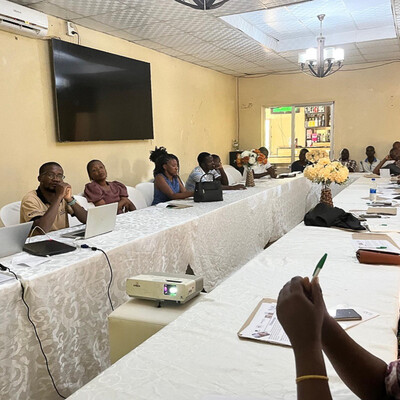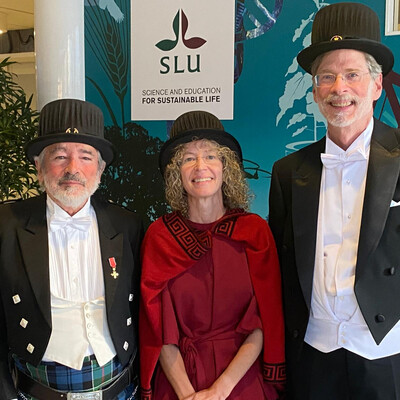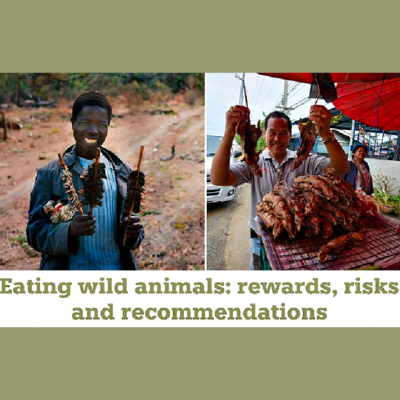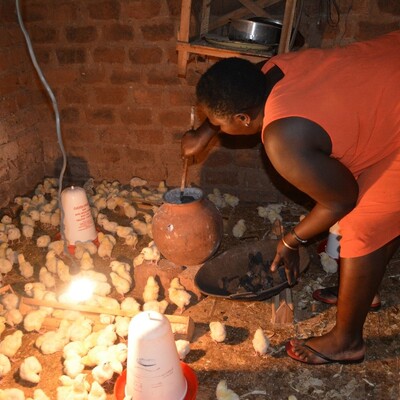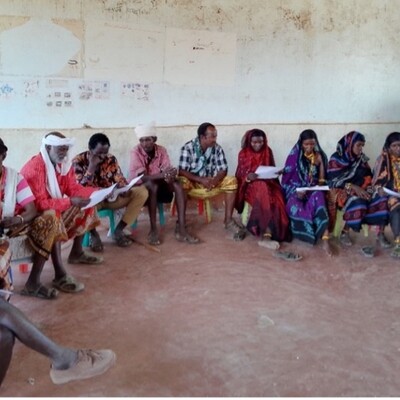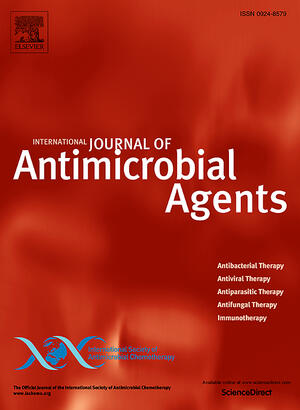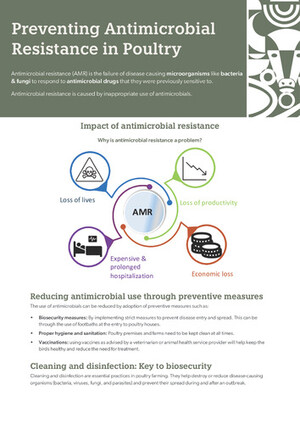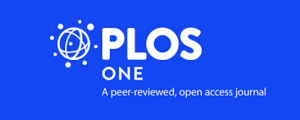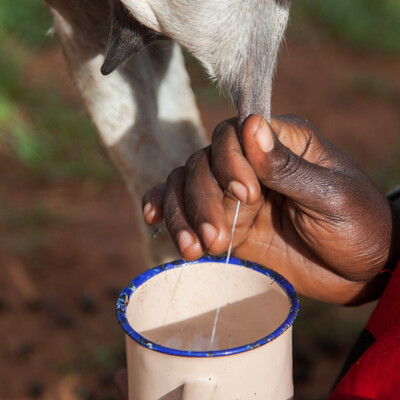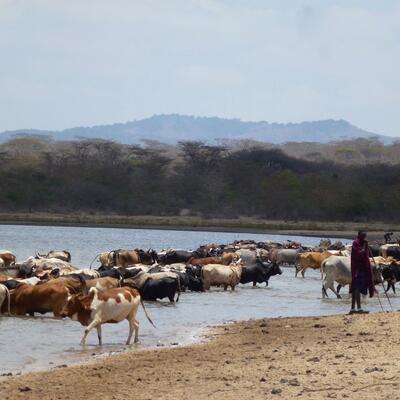
CGIAR AMR Hub hosts Antimicrobial Resistance seminar
On November 18, the first day of World Antimicrobial Awareness Week, the CGIAR Antimicrobial Resistance (AMR) Hub hosted a virtual seminar addressing antimicrobial awareness. Launched in 2019 and led by ILRI, the AMR Hub is a global research and development partnership for reducing agricultural-related AMR in low- and middle-income countries.
Moderated by Ekta Patel, a scientist and communications manager at ILRI, the seminar began with opening remarks from ILRI director general Jimmy Smith. ‘Climate change and COVID-19 have seemingly knocked AMR off the global agenda’, said Smith. However, AMR is not a problem the world can afford to overlook. Without urgent action, AMR could cause 10 million deaths annually by 2050 along with a 3.8 per cent reduction in global GDP.
Faced with these challenges, the AMR Hub has been working with ILRI and other CGIAR partners, including the International Food Policy Research Institute (IFPRI), WorldFish and the International Water Management Institute (IWMI), on research projects to address AMR's connection to livestock, fish and water, which are among the most significant contributors to global AMR. The Hub can be expanded to include other CGIAR centres in the future.
Despite this recent progress, 'there is still a lot of work to be done', said Smith. Scientists do not yet have accurate data on aggregate antibiotic use. Although we know the impact of AMR is significant, this complicates attempts to pinpoint AMR's overall impact on the developing world. As a result, many developing countries have not recognized the urgency of the crisis, leaving them vulnerable to AMR's potentially devastating effects on both human and animal health, not to mention the economy.
For this reason, further research is needed to build evidence of AMR’s impact on developing countries and support innovations that can help farmers provide animal care without relying on antibiotics. It is also necessary to ‘build capacity in developing countries, design and enforce standards on antibiotic use, and expand advocacy for AMR solutions’, said Smith. The AMR Hub will be at the centre of this work going forward.
Smith was followed by Elwyn Grainger-Jones, managing director for the new CGIAR institutional strategy and systems division. Grainger-Jones noted that just like with climate change 15 years ago, efforts to address AMR are hindered by the need for more data and a lack of urgency to address the crisis in many countries. However, the CGIAR can learn from its experience with climate change by recognizing the ‘need to invest early and build recognition that agriculture is both part of the problem and part of the solution to AMR’, said Grainger-Jones.
Anders Dalsgaard, a veterinarian and microbiologist who helped establish the International Centre for Antimicrobial Resistance Solutions (ICARS), spoke next on the ‘opportunities for collaboration between the CGIAR AMR Hub and ICARS’. One avenue for collaboration is on antimicrobial susceptibility testing, which ‘will allow African stakeholders and researchers access to training, identification and testing of bacterial isolates’, said Dalsgaard, which are necessary to document AMR’s impact. Dalsgaard also urged people to shift their perspective on AMR mitigation, saying that ‘prevention and control of AMR should not just be seen as costs because investments will save both lives and money’.
Arshnee Moodley, an ILRI scientist and CGIAR AMR Hub leader, was next to speak. She highlighted the importance of the Hub's global partnerships with both CGIAR centres and national governments. ‘AMR is a One Health issue, and the partnerships at the centre of the hub can allow us to take the One Health approach required to address AMR’, said Moodley.
Moodley also expressed the need to address livestock's contributions to AMR. Two-thirds of all antibiotic use is in livestock as antibiotics are widely available and affordable for farmers. Addressing this problem can be difficult given the differences in livestock systems around the world, so the hub is working to develop solutions that are cost-effective and sustainable as well as 'locally relevant and context specific', said Moodley.
Other key comments were raised by Jerome Delamare-Deboutteville of WorldFish and Javier Mateo-Sagasta of IWMI. Delamare-Deboutteville highlighted the role aquatic food systems have in contributing to global AMR, saying that ‘67 different antibiotics are used in 11 major aquaculture producing countries’. To address these concerns, WorldFish is currently leading a variety of projects to ‘build our understanding of AMR in aquatic food systems’.
Water environments more generally also contribute to global AMR. Resistant bacteria can make their way into water through waste runoff. When this happens, ‘water bodies become a conveyor of antibiotic resistance, and then populations downstream are exposed’, said Mateo-Sagasta. For this reason, IWMI is working ‘to develop models that can predict the concentration of resistant bacteria in water bodies to understand the health risks and test the effectiveness of solutions’.
Although the seminar covered a wide variety of topics relating to AMR, in her concluding remarks, Arshnee Moodely affirmed what was perhaps the seminar’s central theme: that ‘the AMR Hub epitomizes what we want the One CGIAR to do’—bring a variety of partners together and combine expertise to tackle the world’s greatest challenges. As the CGIAR moves into its next phase, the AMR Hub will continue building the partnerships necessary to address global AMR. As Dieter Schillinger, deputy director general of biosciences at ILRI, said at the end of the seminar, 'AMR must be attacked from all angles—nobody can be left out'.
For more information, visit the CGIAR AMR Hub or learn about the Hub’s research activities.
Methicillin-Resistant Staphylococcus aureus (MRSA) Bacteria (photo credit: NIAID)






